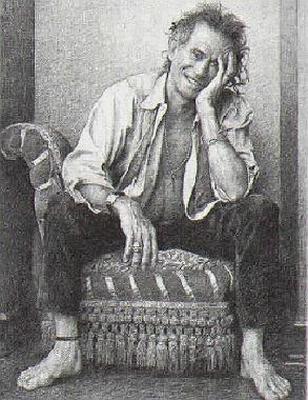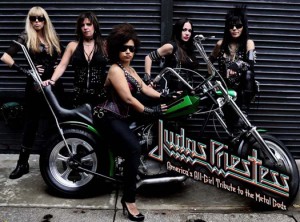Equal opportunity crap?


On the occasion of Bob Mould’s recently published memoir, is it time to reverse Mr. Mod’s critical downgrade on the Huskers? Let’s put aside the muddy-sounding Flying V, the bad drumming, the terrible production values. At a time when so much indie-rock has become marketable,well-kempt, finely polished and polite, is there something especially worthwhile to be gleaned from the legacy of a band that was none of these things? If nothing else, can we put Husker Du at the forefront (along with Eleventh Dream Day) of my invented genre T-Shirt Rock (basically, the music I listen to balance out my love of dandyish fops like Pulp and The Kinks)?
The following post was submitted by my close personal friend E. Pluribus Gergely.
Hi y’all,
I’d like to get this whole thing settled…once and for all.
For years, the Moderator has been relentlessly jabbing at me for having the first three R.E.M. IRS long players in my record collection. Granted, I haven’t listened to them in years, but I decided to do just a few days ago. I’m here to to tell one and all that they are nothing to be embarrarassed about. They’re actually pretty solid. They feature a bunch of winners: “Gardening at Night,” “Radio Free Europe,” “South Central Rain,” “Pretty Persuasion”…all are tracks that still sound pretty friggin’ good. And “Rockville” borders on great. That’s right, great.
I caught them live as well, right around the release of Murmur. I saw them at the University of Pennsylvania, Bucknell, and the Tower Theater. They were phenomenal. Take a good look at the Letterman clips. That’s more or less what they looked like. To put it bluntly, they were cool, really cool, which is something that some of us (eg, Hrundivbakshi) refuse to admit is, was, and should always be a major point of criteria when judging a pop band. Continue reading »


E. Pluribus Gergely posed the question, and alexmagic demanded that it be brought to The Main Stage:
What musician maintained their coolness for the longest period? I defy anyone to come up with a better choice than Keef (1963-1972). That’s a pretty good run.
E. Pluribus
…we can get down into fighting over exact moments/years when people lost it.Is there anything that disqualifies James Brown between 1956 and 1976? The appearance in Ski Party in 1965 would seem to be the biggest stumbling block, but I think it only adds to his legend.
Keef (1963-1972)…James Brown (1956-1976)… Agree? Disagree? Have someone more worthy to propose? The time is yours.
Usually I don’t go in for this whole isolating the instruments, but there’s a cool thing going on here. I think Paul Simonon gets a bad rap as a bass player. He might have started off weak, but he did his thing well and really grew into it.
You can check out all the separate tracks for London Calling here.
The vocals slay me.
I sometimes forget that, before the early 1980s, when new wave and synth-pop bands picked up on some of the most annoying (to me, at least) stylistic elements of David Bowie—the icy sheen of both his Berlin albums as well as his Thin White Duke persona—that he had contemporaries in the 1970s who were more likely to ape the space-rockin’ alien sexgod output of Ziggy and his subsequent “tougher” works. An obvious example would be early Be-Bop Deluxe, a band I feel pretty cool about liking but have yet to be granted “Cool Points” for having done so. I’m calling these artists Fauxwies, like forgotten Fauxwie David Werner, who for some reason popped into my head the other day. He had a late-’70s minor hit song that I liked, possibly the one in the accompanying YouTube clip, and then I never heard of him again. Why? Beside his immediate disciples of Glam, there were others, weren’t there, like that Jobriath guy?
Why did the Teutonic Ice Prince side of Bowie dominate in influence through the 1980s? Why did I have to hold those bands against Bowie for the next 20 years? What was wrong with following the template set by Rockin’ Bowie, as the Fauxwies did?


